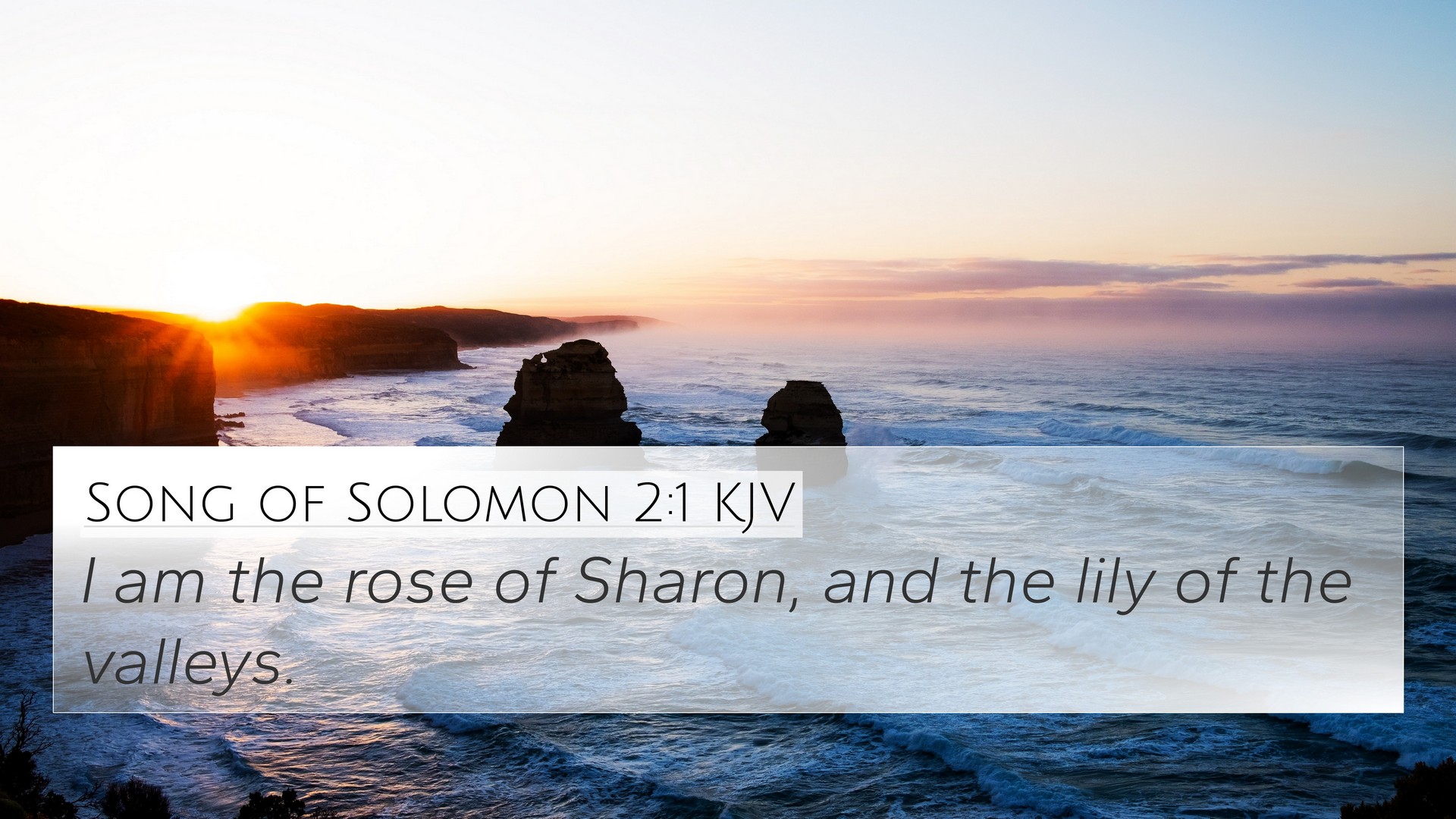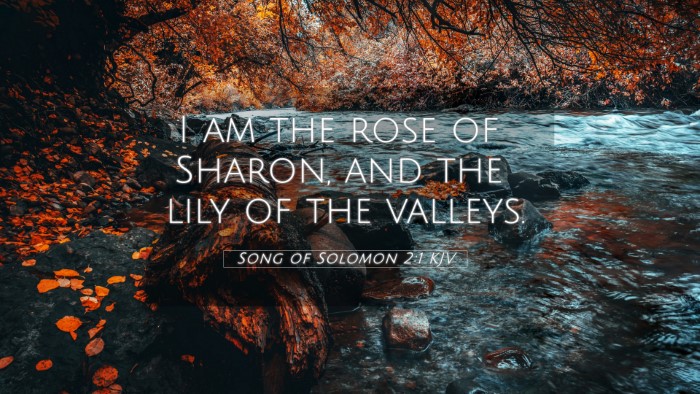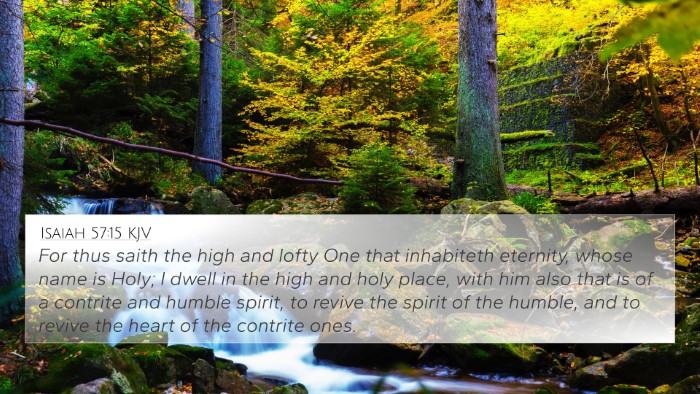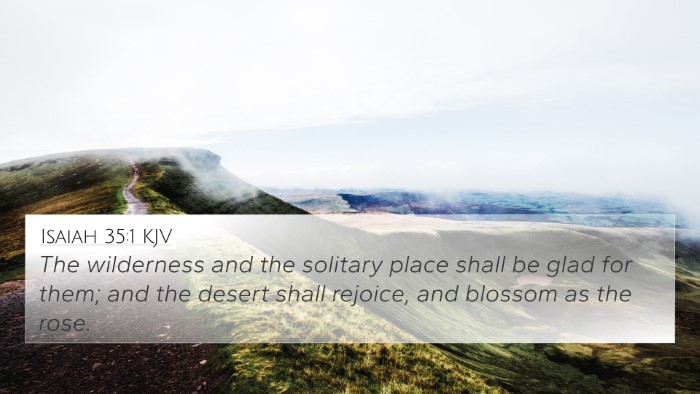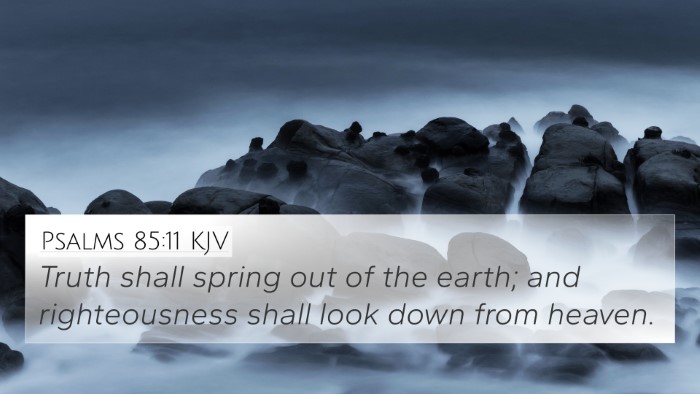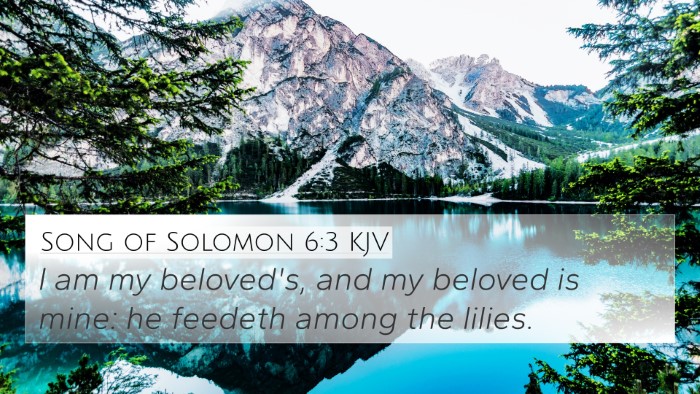Understanding Song of Solomon 2:1
Song of Solomon 2:1 states, "I am the rose of Sharon, and the lily of the valleys." This verse encapsulates the beauty and expressive love found throughout the Song of Solomon, illustrating themes of love, desire, and the relationship between the bride and the bridegroom.
Meaning and Interpretation
The verse serves as a metaphorical declaration of the speaker's self-identity. Let's delve into the insights from various public domain commentaries.
-
Matthew Henry's Commentary
Henry notes that in this poetic expression, the rose of Sharon symbolizes beauty among the flowers, representing worth and loveliness. The lily of the valleys suggests purity and innocence, indicating that the beloved is both valued and cherished by her lover.
-
Albert Barnes' Notes
Barnes highlights the significance of the rose of Sharon as an emblem of distinction. He emphasizes how this flower stands out in the landscape of nature, much like the beloved stands out in the heart of the lover. The verse expresses not only beauty but a profound sense of belonging and identity within the experience of love.
-
Adam Clarke's Commentary
Clarke draws attention to the geographical context of Sharon, known for its bountiful vegetation. By identifying as the rose of Sharon, the speaker conveys the abundance and richness found in love. The mention of valleys symbolizes modesty and humbleness, portraying a sense of grace that accompanies genuine love.
Cross-References to Song of Solomon 2:1
This verse is interconnected with various other scriptures that further illuminate its meaning. Notably, here are some relevant cross-references:
- Isaiah 35:1-2 - "The wilderness and the solitary place shall be glad for them; and the desert shall rejoice, and blossom as the rose." This reflects the beauty of transformation and grace.
- Matthew 6:28-29 - "And why take ye thought for raiment? Consider the lilies of the field, how they grow; they toil not, neither do they spin." This epitomizes God's care for creation, aligning with the lily's symbolism of purity.
- Proverbs 31:29 - "Many daughters have done virtuously, but thou excellest them all." This verse mirrors the beloved's uniqueness and righteous qualities.
- Song of Solomon 1:8 - "If thou know not, O thou fairest among women, go thy way forth by the footsteps of the flock." This verse reiterates the idea of beauty associated with the beloved.
- Philippians 4:8 - "Finally, brethren, whatsoever things are true, whatsoever things are honest, whatsoever things are just, whatsoever things are pure, whatsoever things are lovely, whatsoever things are of good report..." This aligns with the themes of purity and love in the Song of Solomon.
- Jeremiah 31:12 - "Therefore they shall come and sing in the height of Zion, and shall flow together to the goodness of the Lord." This emphasizes the joy and beauty found in God's creation.
- 1 Peter 3:3-4 - "Whose adorning let it not be that outward adorning of plaiting the hair, and of wearing of gold, or of putting on of apparel; but let it be the hidden man of the heart..." This highlights the inner beauty valued in scripture.
Thematic Connections
Song of Solomon 2:1 serves as an excellent example of thematic Bible verse connections. By exploring various themes such as love's beauty, God's creation, and the purity of relationships, this verse interacts meaningfully with a broader biblical narrative. It encourages a comparative Bible verse analysis approach, prompting individuals to uncover deeper meanings through scriptural cross-referencing.
Conclusion
The verse illustrates profound beauty and identity through metaphor, emphasizing the themes of love and intimacy that are central to the Song of Solomon. It invites readers to appreciate the layers of meaning found in biblical texts and encourages a journey through Bible cross-referencing to unveil connections that deepen one's understanding of scripture.
